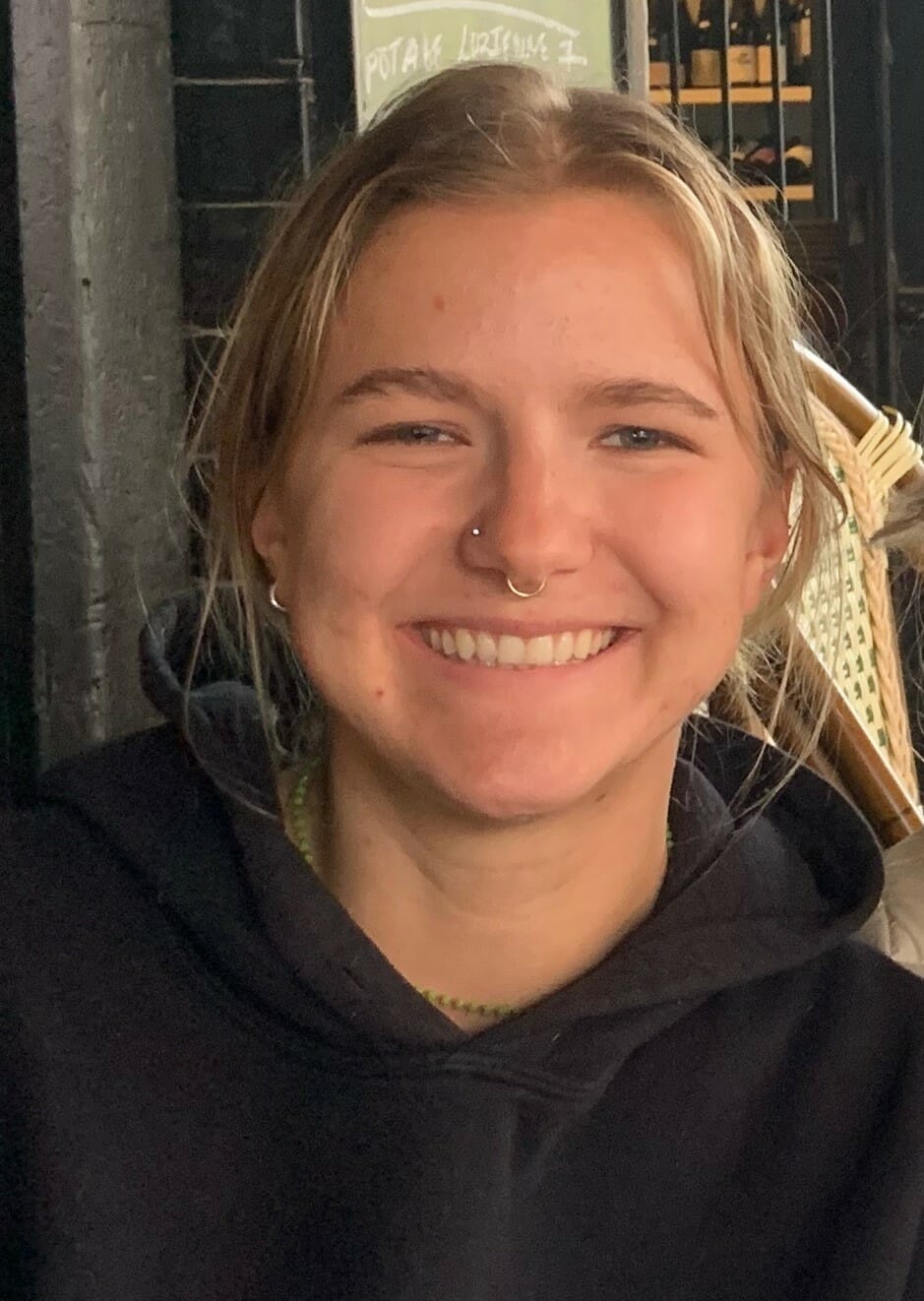A young man set in black and white stands in front of an ATM, pressing buttons. His short hair is unkempt and his jacket is clean but uninteresting. He finds himself unable to take money out of the ATM, pressing buttons in vain. Accepting defeat, he looks over his shoulders, and kneels down to the man sitting on the sidewalk, a small single use cup in front of him. Our protagonist cautiously attempts to pull a few coins out of the cup, as a woman walks up behind him, wallet in hand. He slowly turns as he hears her approach, looking up to her horrified face as she watches him place the coins back into the man’s cup, and dash away.
Niko is a young German man living in Berlin. As he meanders through his life, he is drawn into conversations, typically while pursuing a cup of coffee, with various people, be it strangers or persons he knows very intimately, such as his best friend or father. Through each conversation, we glean more insight into Niko’s troubled existence.
OVID.tv Chooses a Black and White Film for Its Collection
The movie is set in black and white, and focuses on daily scenes heavy with dialogue, juxtaposed with scenes of long, pensive silences. Sometimes two characters sit and watch each other, sometimes they shout, and sometimes the only noise is the sound of high heels in a hallway. In certain moments, jazzy trumpet music livens up the background of a scene. These various levels of noise and silence create a solemn, pensive tone. Most shots are heavily focused on the characters and the conversations between characters.
The main character, Niko, is in every shot and scene, and is followed quite closely by the camera. Sometimes the audience is drawn into a scene with just Niko in it, watching his internal monologue unfold as he struggles through situations, such as losing his lighter and choosing to light his cigarette in the toaster, or when he chooses to jump onto the train after not being able to afford a train ticket. In one scene, Niko tries to get some coffee, but finds the coffee warmer is empty. He turns as someone calls his name, just as a young man walks up behind him to replace the empty coffee.
There are several, pivotal moments of conversation that counterbalance these moments of watching Niko. In one scene, he arrives at an appointment with his parole officer, who talks to him very confrontationally, with Niko being very resistant to help. Niko is hardly flippant, but stubborn, and very clearly uninterested in changing his ways, which appear to be causing him trouble. He encounters various people from his past and present, in addition to some strangers who impact him deeply. Niko has conversations with all of them that serve to develop his character to us as we follow him through the film.
A Coffee In Berlin is for folks who like a slower, deep thinking story that delves into the complicated mindset of one character at a specific moment in his life, foregrounding dialogue over action. It is all in black and white, and in German with Subtitles.
RECOMMENDED
Nominate this for The Picture This Post BEST OF 2022???
Click Readers' Choice!
CAST:
Tom Schilling
Friederike Kempter
CREATIVE TEAM:
Director: Jan Ole Gerster
For more information visit The OVID.tv page for A Coffee in Berlin
Images courtesy of OVID.tv
Read how filmmakers make their magic— in their own words. Read “FILMMAKERS SPOTLIGHT— Meet Filmmakers Picture This Post LOVES!” and watch this video for a story preview —

About the Author: Gwen Flatland
Gwen is a Colorado native recently relocated to Bozeman, Montana. Their forever life dream has been to be a ‘writer someday’, and most of their notebooks and her notes- app are full of half-baked narratives based on frustrations, imagination, and more often than not crazy dreams. Their favorite things are reading outside, basking in the morning sun, running on a mountain trail, and cuddling her puppy.










